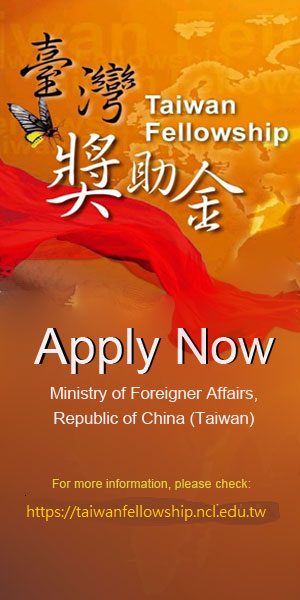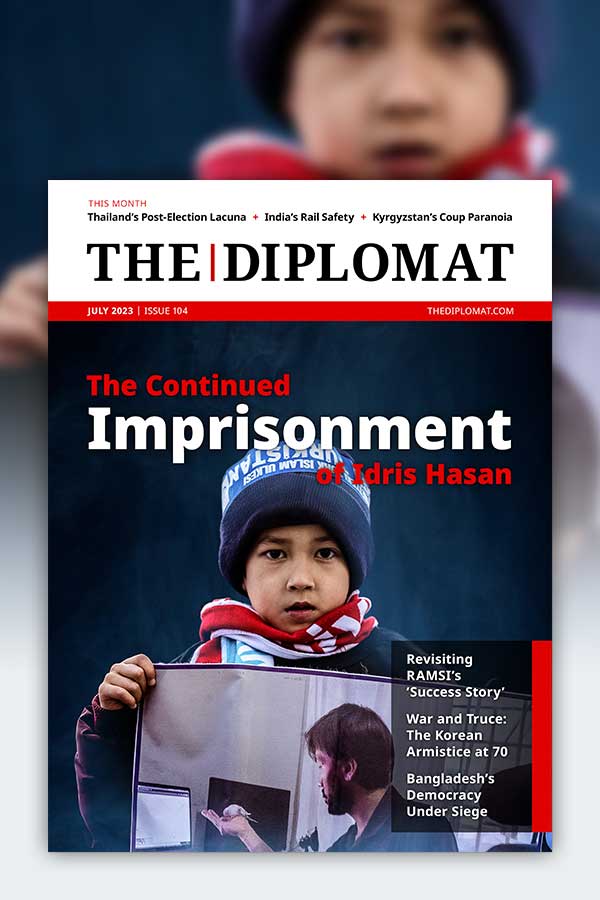| Welcome to the latest issue of Diplomat Brief. This week our top story explores India’s unexpected role in helping Sri Lanka through the worst of its debt crisis. We also have an interview with George Black, the author of “The Long Reckoning: A Story of War, Peace, and Redemption in Vietnam,” about the (still incomplete) reckoning with U.S. atrocities during the Vietnam War. |
| Story of the week | ![[object Object]](https://thediplomat.com/diplomat-brief/2023/vol27/images/feature.jpg) | Economy India as a Lender of Last ResortWhat Happened: Sri Lanka’s economy hit rock bottom in 2022, as the country defaulted on its debts and struggled to import the basic necessities its population needed. In their country’s time of need, Sri Lankans hoped for some support from both India and China in the face of mounting economic and financial woes. However, the magnitude of Indian financing – and the lack of anything in comparison from China – came as a significant surprise. India provided a total of $4 billion in emergency financing, which came in the form of a currency swap, import credits, and deferring trade liabilities through the Asian Clearing Union (of which India is the biggest member economy). Our Focus: As Thilina Panduwawala, the head of economic research at Frontier Research, Sri Lanka, writes for The Diplomat: “India’s government has not been shy about acknowledging that this lender of last resort action was motivated by the need to avoid a greater humanitarian and social disaster on its doorstep – and to offset China’s influence in Sri Lanka.” However, there were more direct benefits as well: the type of aid given to Sri Lanka ensured it could only be spent on imports from India, which boosted India’s trade figures. China’s example is instructive: “Sri Lankan imports from China dropped about $1.5 billion in 2022, with a total value of $3.3 billion. On the other hand, imports from India remained stable in dollar terms at $4.7 billion, compared to $4.6 billion in 2021.” What Comes Next: While Sri Lanka’s debt crisis garnered the most headlines, it’s not the only example of India acting as a lender of last resort in its immediate neighborhood. India has previously offered emergency loans to Maldives and Nepal as well. But, as Panduwawala notes, Indian lending is generally limited to short-term emergency facilities. “Expanding the size of such lending, alongside FDI by Indian firms, will be vital if India is to expand its role beyond a lender of last resort and offset China’s role as a longer-term development financier in South Asia,” he argues. Read this story |
| Behind the News | INTERVIEW George BlackGeorge Black, the author of “The Long Reckoning: A Story of War, Peace, and Redemption in Vietnam,” on the long pause before U.S.-Vietnam reconciliation after the war ended: “Generally, it’s the winner who gets to dictate the terms of the peace... But Vietnam is the big exception to the rule. The United States lost the war, yet its vast economic and political power meant that it could dictate the terms of the peace, and in ways that deepened Vietnam’s postwar misery.” Read the interview |
| This Week in Asia | Northeast Asia Fukushima Wastewater Release NearsFor years, Japan has been laying the groundwork to release treated – but still radioactive – wastewater from the crippled Fukushima nuclear power plant into the Pacific Ocean. Now the day is drawing near. Last week, TEPCO finished the final inspections of the equipment; this week, the IAEA director is in Japan for his own inspection. But the plan, which Japan says is necessary as storage space runs out, has still drawn fierce criticism from Japanese locals, as well as China, South Korea, and Pacific Island states worried about unforeseen consequences. Find out more | South Asia India Hosts Virtual SCO SummitWith India as this year’s chair of the Shanghai Cooperation Organization, pundits have been wondering how New Delhi would handle the annual summit – specifically, the attendance of Russian President Vladimir Putin, whose invasion of Ukraine made him a global pariah wanted by the ICC, and Chinese President Xi Jinping, who has not visited India since a deadly clash along the Sino-Indian border in 2020. India effectively avoided those tough choices by making this year’s SCO summit a virtual affair, allowing Putin and Xi to attend without setting foot on Indian soil. Find out more | Southeast Asia Thailand’s Parliament Convenes, Selects House SpeakerWan Muhamad Noor Matha, a member of Thailand’s opposition Prachachart Party, was this week selected as the speaker of Thailand’s House of Representatives, paving the way for the selection of a new prime minister next week. The vote came a day after the convening of the parliament elected at a general election in May. Known as Wan Noor for short, the 79-year-old’s candidacy represented a compromise between the Move Forward Party (MFP), which prevailed at the election, and its alliance partner, the Pheu Thai Party, which came a close second. Among Wan Noor’s most pressing tasks as speaker will be to schedule and table a vote for prime minister, though it still remains unclear whether the MFP’s leader, Pita Limjaroenrat, has the support necessary to reach the top office. Find out more | Central Asia Why Are Russian Concerts Being Canceled in Central Asia?There has been a wave of cancellations of planned concerts involving Russian artists in Kazakhstan, Uzbekistan, and Kyrgyzstan. It is tempting to read the cancellations as evidence of Central Asian countries distancing themselves from Russia’s war in Ukraine – and indeed, some of the concerts were scrapped after grassroots campaigns against strongly pro-war musicians. But others seem to have been cancelled for the musicians’ anti-war learnings – or out of old-fashoined moral policing impulses. Find out more |
| Visualizing APAC |  | In 2022, 12.5 percent of Africa’s exports went to China, compared to a mere 0.8 percent at the beginning of the century. See the full picture |
| Word of the Week | Politics 本省人Běnshěngrén, literally, “person from this province” in Mandarin, refers to people in Taiwan whose ancestors were already living on the island before 1945. By contrast, 外省人 (wàishěngrén) are people whose ancestors came to Taiwan from mainland China from 1945-49 – many of them Kuomintang loyalists fleeing the takeover by Communist forces. Find out more |
|  |


![[object Object]](https://thediplomat.com/diplomat-brief/2023/vol27/images/feature.jpg)

